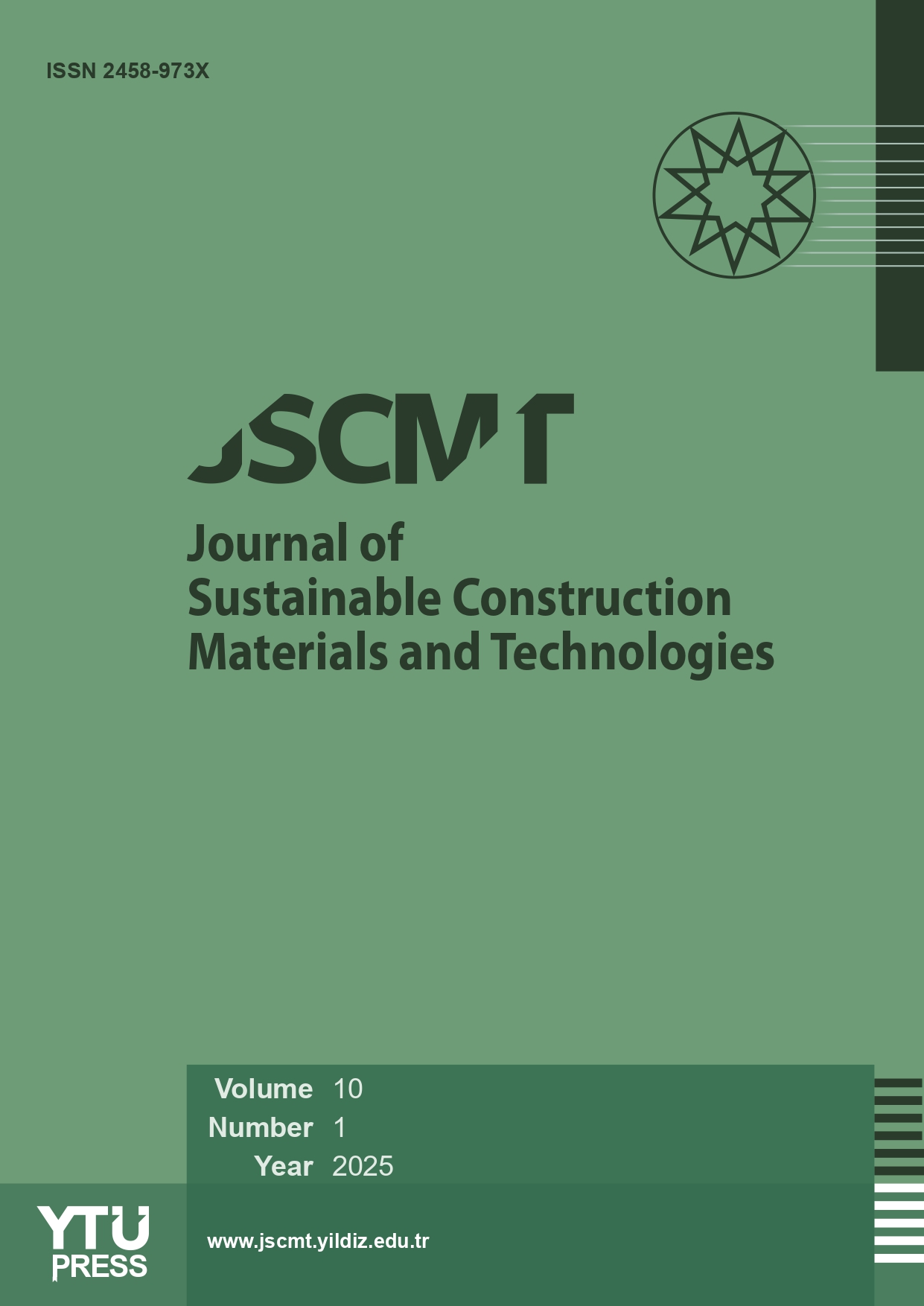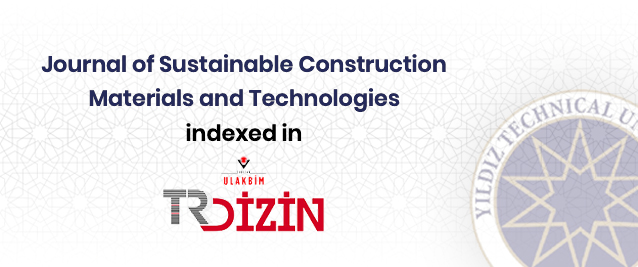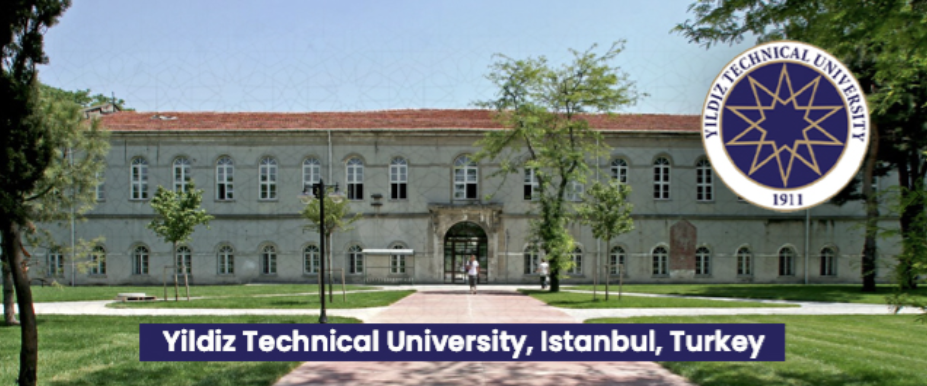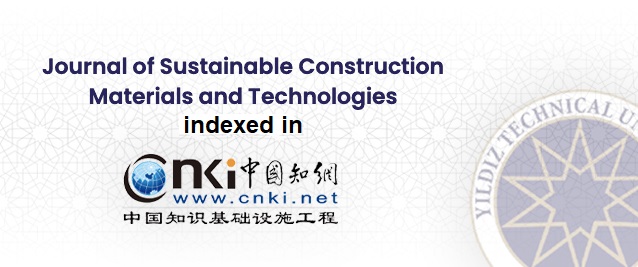Abstract
The current study investigates the possibility of volcanic Tuff of Earth of Datça (ED) in Turkey to be used as an aluminosilicate source in producing a geopolymer foam for thermal insulation. An extensive evaluation of the effects of fine sand–to–pozzolan and Al powder–to–pozzolan ratios on the physical, mechanical, and thermal properties and morphology (porosity, average and maximum pore diameter, pore size distribution) of the pores were carried out. The sodium silicate and potassium hydroxide (12.5 M) solutions with an activator ratio of 2.5 were used as alkali activators, and Al powder was used as a foaming agent. Research results reveal that Earth of Datça is a suitable precursor for producing a geopolymer foam. Fine sand and aluminum powder contents are critical to the optimum foam structure. The addition of finely ground silica sand ensured the volumetric stability of the binder and prevented the collapse after swelling of the binder. The optimum Al powder–to–pozzolan ratio was determined as 0.5% because it gives higher physical, mechanical, and thermal properties due to the more homogenous microstructure with finer pore size and narrower pore size distribution lower degree of interconnectivity between the pores. Research results also show that the natural volcanic Tuff of Datça Peninsula as an aluminosilicate source gives promising results in the field of producing highly porous geopolymers with low thermal conductivity (0.087–0.134 W/mK), high porosity (72.3–82.6%) and an adequate compressive strength (0.40–2.09 MPa). This study contributes to the literature that Earth of Datça–based geopolymer foam may function well as an insulation material for building enclosures.
















